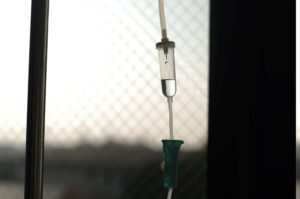Last week, readers learned easy ways to reduce the risk of developing or contracting gastroenteritis. Our doctors are thorough when getting to the bottom of what caused your case of gastroenteritis. Today, we are sharing ways your gastroenterologist in Orlando at Gastroenterology Consultants of Central Florida may treat your condition.
Causes of gastroenteritis:
 Gastroenteritis is most often caused by a gastrointestinal viral infection. Many of the same symptoms can result from a variety of other conditions such as the following:
Gastroenteritis is most often caused by a gastrointestinal viral infection. Many of the same symptoms can result from a variety of other conditions such as the following:
- indigestion
- dysentery
- alcohol intoxication
- anthrax infection
- bacterial gastrointestinal infection
- IBS (irritable bowel syndrome)
- medication side effects
- parasite infections
- stress
- toxic ingestion (such as eating chemicals or poisonous plants)
Read up on our recent blogs to learn about risk factors and ways to reduce them.
Treating gastroenteritis:
Treating gastroenteritis promptly is very important. Dehydration can easily occur in infants, small children, elderly, and people with chronic illnesses such as diabetes.
Treatment plans for this condition are individualized as every case varies. Some cases last two days while others last two weeks. It is so important to highlight the underlying cause as this determines the treatment plan.
Age, medical history, and any other conditions a patient has is taken into consideration when a gastro doctor chooses a treatment option. Gastroenteritis treatment usually involves a multifaceted plan that addresses the cause.
When gastroenteritis is caused by a self-limiting condition such as viral gastroenteritis, the treatment includes avoiding solid foods. This is the only way you can fully rest the stomach and intestines. Once the symptoms have passed, bland, solid foods can slowly be added back into the patient’s diet.
Danger of dehydration:
 Plenty of fluids is a top priority in any treatment plan to avoid dehydration. Pedialyte is a great option if it is challenging to get enough electrolytes in daily.
Plenty of fluids is a top priority in any treatment plan to avoid dehydration. Pedialyte is a great option if it is challenging to get enough electrolytes in daily.
Antibiotics may be necessary in some cases. They are used for bacterial infections but not viral infections- as you may already know. Bacterial food poisoning most often requires antibiotics to give the body the best chance of a timely, full recovery.
Cases of severe gastroenteritis which lead to dehydration may require hospitalization. It may seem overboard or frightening. However, a patient can get intravenous fluids, or fluids in an IV, which is the most efficient way to rehydrate swiftly.
Join us next time as we share complications of gastroenteritis. It is in a patient’s best interest to receive care immediately to get to the root of the condition. Postponing medical attention may result in severe complications.
Staff Writer
